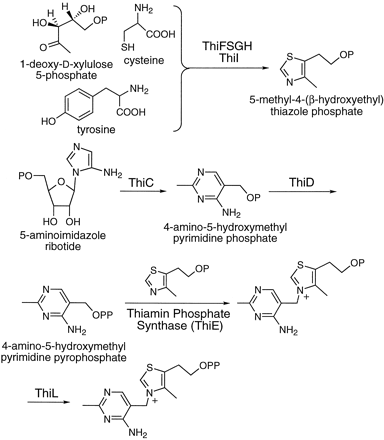Capulator
likes to smell trees.
Supporter
- 6,070
- 313
I have been doing some reading this morning on vitamin b-1... and I don't think I will be buying it anymore.
thoughts?
thoughts?
I have been off the B-vitamin band wagon a while ago. I never saw a difference with or without it. Thanks for sharing the pdf with all of us. I had read a very similar article a while back. In some ways I am surprised at how many people are still buying into the B-vitamin myth. The nutrient companies for the most part never did, look how few of them put out B-vitamin supplements, so why would us growers buy into it? Well hopefully the myth will soon be totally dispelled and people stop wasting money on bottles of additives that do nothing.

imho, chitin can get the job done for less $$ than thiamine. crab meal ftw.
Here is one study
Vitamin B1 Functions as an Activator of Plant Disease Resistance1
- Thiamine
- Thiamine or vitamin B-1, is believed to induce systemic acquired resistance (SAR) in plants, according to researchers at the Seoul National University. Korean researchers found that thiamine-treated rice and other vegetable crop plants showed increased resistance to fungal, bacterial and viral infections. Thiamine also activates the SAR-related gene in tomato, tobacco and cucumber plants, according to the study. The benefits of increased pathogen resistance helps growing plants fight off disease and yield healthier crops. Vitamin B-1 is commonly found in rooting hormone formulas and fertilizers.
imho, chitin can get the job done for less $$ than thiamine. crab meal ftw.
Here is one study
Vitamin B1 Functions as an Activator of Plant Disease Resistance1
- Thiamine
- Thiamine or vitamin B-1, is believed to induce systemic acquired resistance (SAR) in plants, according to researchers at the Seoul National University. Korean researchers found that thiamine-treated rice and other vegetable crop plants showed increased resistance to fungal, bacterial and viral infections. Thiamine also activates the SAR-related gene in tomato, tobacco and cucumber plants, according to the study. The benefits of increased pathogen resistance helps growing plants fight off disease and yield healthier crops. Vitamin B-1 is commonly found in rooting hormone formulas and fertilizers.
Hip, we are not simply trying to giganticize everything, we are trying to maximize our output in comparison to our input. And one thing to always remember, too much of anything is no good. None of us are arguing that B-vitamins don't play a role in plant health, however we are saying that the addition of B-vitamin products to an effective nutrient regimen is unnecessary. If the rhizosphere is maintained properly and there are sufficient colonies of mycorrhizae, beneficial bacteria and trichoderma then the addition of any bottled B-vitamins becomes unnecessary as the micro-life and the plant itself provide all the necessary B-vitamins for proper plant health.
